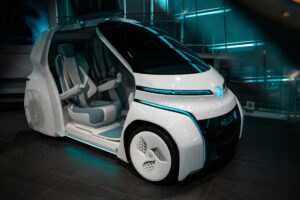Imagine a world where robots are your new coworkers, not just in factories but in offices as well. While this may sound like the plot of a futuristic sci-fi movie, the reality is that robotic process automation (RPA) is revolutionizing the business world at a rapid pace.
RPA is the cutting-edge technology that allows businesses to automate repetitive tasks through the use of software robots or “bots”. These bots can mimic human actions such as data entry, calculations, and even communication with other systems. The result? Increased efficiency, improved accuracy, and significant cost savings for organizations across various industries.
According to a recent study by Deloitte, businesses that have implemented RPA have seen an average cost reduction of 22% in their operations. This technology is particularly beneficial in sectors such as finance, healthcare, and customer service, where high volumes of data processing and transactions are common.
As Steve Wilson, CEO of a leading RPA provider, aptly puts it, “RPA is not about replacing humans with robots, but about augmenting human capabilities to focus on more strategic and creative tasks.” This sentiment echoes the broader trend in the business world towards automation and digital transformation.
In conclusion, the rise of RPA is not just about streamlining business operations but also about empowering employees to work smarter, not harder. As businesses continue to embrace this technology, we can expect to see a fundamental shift in how work is done, with robots as our trusted allies in the pursuit of efficiency and innovation.



